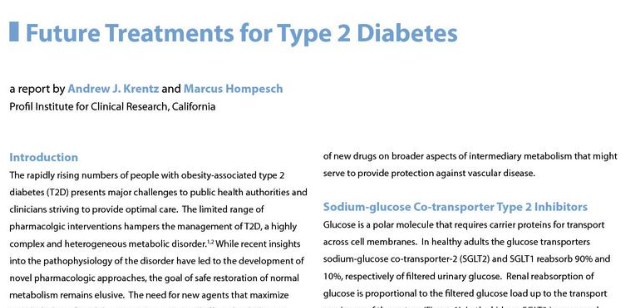About This Article
The rapidly rising numbers of people with obesity-associated type 2 diabetes (T2D) presents major challenges to public health authorities and clinicians striving to provide optimal care. The limited range of pharmacologic interventions hampers the management of T2D, a highly complex and heterogeneous metabolic disorder. While recent insights into the pathophysiology of the disorder have led to the development of novel pharmacologic approaches, the goal of a safe restoration of normal metabolism remains elusive. The need for new agents that maximize metabolic benefits while minimizing unwanted effects has led to an explosion of scientific activity. This raises the prospect of greater individualization of therapy, an important tenet in modern diabetes care.



